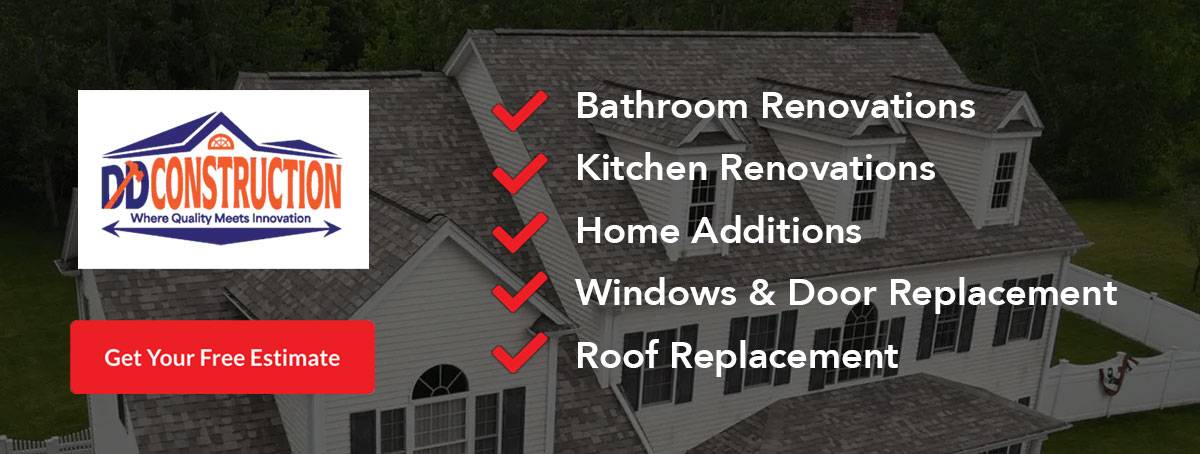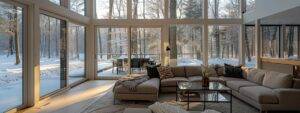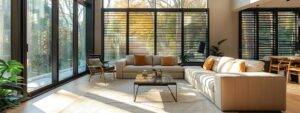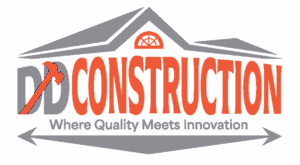Upgrading your home’s windows can transform not only the aesthetic appeal of your property, but also contribute significantly to energy efficiency and overall comfort. Homeowners in Massachusetts, where the weather conditions demand resilient and energy-efficient solutions, are increasingly turning to quality window replacement—often in consultation with dd construction ma—to ensure their projects meet regional standards. In this article, we explore various window types and materials that offer superior performance in the region’s challenging climate. The guide will detail the benefits and downsides of popular window configurations, explain how cutting‐edge replacement technologies minimize heat loss, and outline the process and costs associated with professional window installation, including insights from dd construction ma. Homeowners seeking to reduce energy bills, improve comfort, or enhance their property’s curb appeal need a clear understanding of the different options available—from double-hung systems to casement windows and the innovative bay and slider designs that add versatility to any home.
This comprehensive article addresses key questions such as “What are the benefits of double-hung windows?” and “How do casement windows improve home ventilation?” It also examines the durability, maintenance requirements, and energy efficiency attributes of various materials including vinyl, wood, aluminum, and composite. In addition, readers will discover how quality window replacement is a critical component of improving overall energy performance, reducing energy costs, and making substantial impacts on indoor comfort. The replacement process, which entails a series of professional steps from consultation to post-installation support, is discussed in detail, ensuring that homeowners are well-informed before making a long-term investment.
Moreover, the article emphasizes the importance of selecting local experts—such as NewView Windows—who understand the unique building codes and climate challenges of Massachusetts. Real-world examples, comparative tables, and detailed lists are provided to empower consumers with the necessary data and insights to choose the perfect replacement windows for their home. Whether you are looking to update the look of your living space, boost home value, or simply save on future energy bills, these guidelines are designed to help you make an informed decision seamlessly.
Transitioning from these introductory insights, the article now delves into detailed answers to some of the most common questions related to window replacement in Massachusetts.
What Are the Best Window Types for Replacement in Massachusetts?
Massachusetts homeowners often ask which window types best suit their replacement needs, taking into account the state’s cold winters, humid summers, and varied architectural styles. The ideal window type depends on factors such as energy performance, maintenance, aesthetics, and ventilation. Choosing the right window not only improves your home’s aesthetics but also contributes to energy savings and comfort by reducing drafts and ensuring proper insulation.
What Are the Benefits of Double-Hung Windows?
Double-hung windows are widely favored in Massachusetts for their versatility and ease of use. These windows feature two operable sashes that move vertically; the top sash can often tilt inward for easy cleaning. The primary benefit is enhanced ventilation control. Homeowners can adjust either the upper or lower sash to allow for increased air circulation while maintaining a degree of insulation. Studies have shown that a well-installed double-hung window system can reduce energy loss by up to 20% compared to older, single-pane windows. Additionally, their classic design fits beautifully with both modern and traditional homes, ensuring that improvements in functionality do not come at the expense of curb appeal.
Other advantages include improved safety features through the addition of modern locking mechanisms and screens that keep out pests while still allowing airflow. In regions where snowfall and ice accumulation are common, the design of double-hung windows allows for efficient drainage and easy removal of debris. Furthermore, the mature market for these windows ensures a wide selection of energy-efficient models that are often Energy Star certified. With enhanced durability, ease of repair, and cost-effective installation processes, double-hung windows emerge as a practical and stylish choice for many Massachusetts homeowners.
How Do Casement Windows Improve Home Ventilation?
Casement windows, which swing outward on hinges, are highly effective at promoting air circulation and enhancing natural ventilation. When fully opened, these windows create a larger opening compared to sliding or double-hung windows, capturing breezes more effectively. Their design is particularly advantageous in areas where cross-ventilation is necessary to expel hot air trapped inside during the warmer months.
The operating mechanism of casement windows uses wind pressure to help open them further, maximizing airflow and thereby reducing the reliance on mechanical air conditioning. This natural ventilation translates to improved indoor air quality, and studies indicate that homes equipped with casement windows can achieve a significant reduction in indoor pollutant concentrations. Additionally, casement windows are renowned for their superior energy performance, thanks largely to advanced weather-stripping and tight seals which minimize air leakage when closed. Their sleek and contemporary design adds a modern touch to any home, while also being low-maintenance and highly customizable. Homeowners benefit not only from the increased energy efficiency but also from the contribution toward a healthier indoor environment.
Why Choose Bay and Slider Windows for Your Home?
Bay and slider windows are excellent options for Massachusetts homeowners looking to increase both interior space and natural light. Bay windows extend outward from the home’s exterior, providing a panoramic view and creating an inviting alcove that can be used as a reading nook or display area. Slider windows, by contrast, offer a seamless sliding mechanism that allows large uninterrupted glass panels to open and close effortlessly. This design not only maximizes exposure to natural light but also improves the overall aesthetic of your home.
Both types of windows excel in enhancing the architectural character of a house. Bay windows tend to improve interior acoustics and temperature regulation due to their air gap design, while slider windows contribute to better spatial flow, especially in homes where space is at a premium. The increased glazing area in both bay and slider configurations helps disperse sunlight throughout the interior, thereby reducing the need for additional electric lighting during daytime hours. Energy-efficient models of these windows also come with advanced coatings that reduce heat loss, making them an attractive solution for cost-conscious homeowners. These windows are strategically ideal for rooms that require expansive views of gardens, streets, or water bodies, providing both visual appeal and functional benefits.
How to Select the Right Window Style for Your Home’s Architecture?
Selecting the right window style that complements your home’s architecture is a critical decision. The window replacement process should begin with an assessment of the existing architectural elements of your home—be it traditional colonial, contemporary, or craftsman style. Modern window designs now offer a variety of customizable options to match any historical or modern aesthetic. Homeowners should consider both form and function: while contemporary windows might offer excellent energy efficiency and low maintenance, traditional styles can bring a timeless appeal and better resale value.
When choosing a window, it’s essential to align the window frame style, color, and configuration with your home’s exterior elements such as siding, trim, and roofing. Utilize manufacturers that provide options for both custom sizing and advanced energy features. Consultation with professionals can ensure that the installation meets local building codes and climate demands. Through a combination of design visualizations and sample installations, homeowners can preview how various window styles will enhance the overall facade of their home. Integrating these choices with the expected energy performance ensures that the aesthetic improvements also contribute to enhanced home comfort and reduced utility bills.
Which Window Materials Offer the Best Durability and Energy Efficiency?
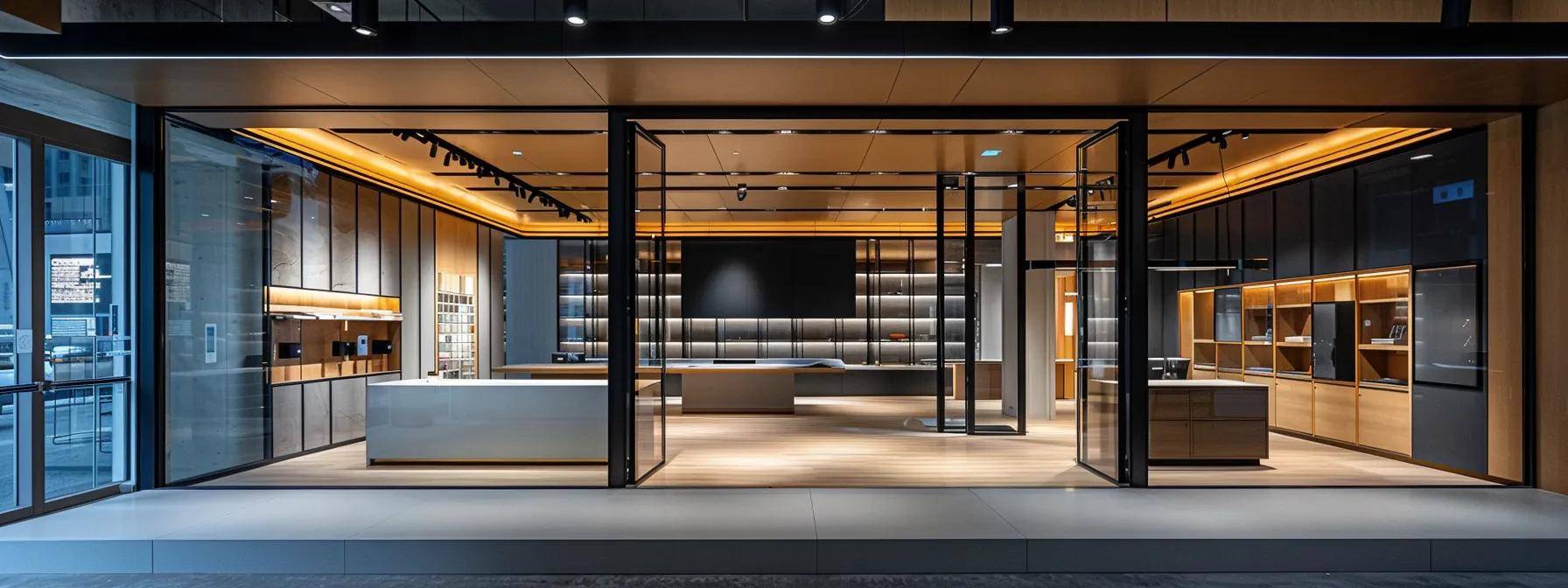
Choosing the right material for your replacement windows is crucial to achieving long-term durability and energy efficiency. Materials not only affect the performance and maintenance requirements of windows but also impact the overall look of your home. Massachusetts homeowners must consider climate conditions, insulation properties, and the maintenance burden when selecting a window material. Durable, low-maintenance options help manage the challenges posed by harsh winters and humid summers, ensuring that your investment performs well year after year.
What Are the Advantages of Vinyl Windows for Massachusetts Homes?
Vinyl windows are one of the most popular choices for window replacement in Massachusetts because they offer superior insulation, durability, and affordability. With advanced multi-chamber designs, vinyl windows can reduce thermal conductance significantly, keeping heat inside during winter and outside during summer. This directly contributes to reduced energy costs—studies have indicated that upgrading to energy-efficient vinyl windows can lower heating bills by up to 15% in cold climates.
Additionally, vinyl is resistant to moisture, rot, and insects, which is particularly important under Massachusetts’ fluctuating weather conditions. The inherent low-maintenance installation means no need for repainting or refinishing over many years, saving homeowners both time and money. With a variety of colors and finishes available, modern vinyl windows can mimic the appearance of wood while outperforming it in terms of energy efficiency and durability. Their robust construction, combined with excellent weather resistance, makes vinyl an ideal choice for homeowners aiming to enhance energy performance without compromising on style.
How Do Wood Windows Enhance Aesthetic Appeal and Insulation?
Wood windows are a traditional choice that offer exceptional aesthetic appeal and natural insulation properties. Many homeowners appreciate wood for its warm, timeless look and its ability to be customized through staining or painting. Wood naturally traps air within its cellular structure, providing excellent insulation that can be further enhanced through modern glazing technologies. While they require more maintenance than vinyl or aluminum, the superior energy efficiency and visual warmth make wood windows a compelling option for historic homes and upscale residential properties.
The main challenge with wood windows is their susceptibility to moisture damage and warping if not properly maintained. However, with the addition of quality weatherproofing treatments and insulated glass, modern wood windows can achieve performance on par with more contemporary materials. Homeowners who invest in regular maintenance find that wood windows continue to add significant value and charm to their homes, merging form with function. As a sustainable material when sourced responsibly, wood windows also offer an eco-friendly alternative to synthetic materials.
Are Aluminum and Composite Windows Good Choices for Replacement?
Aluminum windows are known for their strength and slim profiles, providing a modern aesthetic with highly durable construction. Although aluminum is a superior structural material, its high thermal conductivity often requires thermal breaks and insulating coatings to enhance energy efficiency in the cold Massachusetts climate. They are popular in contemporary designs and commercial applications because of their sleek appearance and ability to support large glass areas. In contrast, composite windows, which combine multiple materials such as wood fibers with polymers, offer a balance between durability, energy efficiency, and low maintenance. Composites can mimic the traditional look of wood without the same maintenance drawbacks, making them an attractive option for homeowners seeking the best of both worlds.
While both aluminum and composite options are suitable for replacement projects, the final choice often depends on the homeowner’s preference for aesthetics versus performance. Composites tend to offer better insulation values and resistance to moisture, which can translate to long-term savings on energy bills, while aluminum windows are ideal when a slim, modern profile is desired. Careful evaluation of these materials, in relation to the specific needs and style of the property, ensures that the right balance between function and design is achieved.
How Does Material Choice Affect Window Longevity and Maintenance?
The longevity of replacement windows heavily depends on the chosen material and its inherent properties. Vinyl and composite windows generally require less maintenance and exhibit longer lifespans in fluctuating climates compared to traditional wood, which might need more frequent refinishing. Aluminum windows, while extremely durable in terms of structural integrity, often necessitate additional treatments to prevent thermal inefficiency and corrosion. When selecting window materials, homeowners must account for local climate conditions, exposure to moisture, and the intensity of sunlight that may affect the window’s finish over time.
In practical terms, materials such as vinyl and composite offer a strong combination of high energy efficiency, ease-of-maintenance, and lasting performance. Extensive warranties provided by manufacturers also serve as a testament to the quality and durability of these products. By choosing materials that require minimal upkeep, homeowners can reduce long-term costs while ensuring that their windows continue to provide optimal performance through harsh winters and humid summers. Ultimately, the material selection not only influences initial performance but also determines the cost-effectiveness and aesthetic longevity of the window installation.
How Does Quality Window Replacement Improve Energy Efficiency and Reduce Costs?
Quality window replacement plays a pivotal role in reducing a home’s energy consumption and thereby lowering utility bills. Efficient windows minimize heat transfer, ensuring that warm air remains inside during winter and outside during summer. Upgrading to Energy Star rated windows or those boasting advanced low-emissivity (Low-E) coatings significantly improves insulation properties. These improvements can result in energy savings of 10% to 30%, validating the long-term cost-effectiveness of investing in modern windows.
What Are the Energy Star Certified Window Options Available?
Energy Star certified windows are carefully engineered to meet strict energy efficiency guidelines, offering enhanced insulation and minimal air leakage. Many of these windows incorporate multiple glazing layers, low-E coatings, and inert gas fills that work synergistically to maintain consistent interior temperatures. For Massachusetts homeowners, these windows provide a reliable method for managing energy costs in response to drastic seasonal temperature shifts. In addition to reducing energy consumption, Energy Star windows contribute to lower greenhouse gas emissions by reducing the strain on heating and cooling systems. The options available in the market range from double-hung to casement models, all designed to deliver optimum performance in diverse architectural and climatic conditions.
How Much Can You Save on Energy Bills With New Windows?
Studies and real-world data consistently demonstrate that upgrading to high-performance windows can result in substantial savings on energy bills. Homeowners who invest in quality window replacements often see reductions in heating costs by as much as 20% during the coldest months. Over the lifetime of the windows, these savings compound, providing a return on investment that far outweighs the initial installation expenses. Calculators available online help homeowners estimate potential savings based on their current energy usage and the performance parameters of the new windows. Additionally, lower energy consumption contributes to a reduced carbon footprint, aligning with both economic and environmental goals. By choosing windows with proven energy-efficient features, Massachusetts residents can enjoy a cooler, more comfortable home while significantly cutting down on utility expenses.
How Does Proper Installation Impact Window Performance?
The performance of energy-efficient windows is not solely determined by the product specifications—it is also greatly influenced by the quality of installation. Even the best windows can underperform if installed incorrectly. Professional installation ensures that windows are properly sealed against drafts, reducing air leakage and moisture intrusion. Moreover, expert installers adhere to local building codes and manufacturing guidelines, which are critical for optimizing the insulation properties and structural integrity of the windows. Poor installation may also lead to issues such as condensation, mold growth, or premature wear, which can neutralize the benefits of high-quality windows. Engaging reputable professionals minimizes these risks, ensuring that the window replacement project translates into real energy efficiency and cost savings over time.
What Role Does Window Insulation Play in Home Comfort?
Window insulation is the cornerstone of a comfortable and energy-efficient home. Quality windows incorporate advanced insulation techniques through the use of insulated frames, warm edge spacers, and triple-pane or double-pane glass configurations. These elements collectively contribute to a tight building envelope that minimizes unwanted heat transfer. In Massachusetts, where fluctuating temperatures demand both robust winter insulation and summer cooling, the right window insulation directly impacts indoor comfort. Improved insulation not only helps maintain stable indoor temperatures but also reduces noise pollution and enhances security. A well-insulated window product can make a dramatic difference in reducing heating and cooling demands, ensuring that every part of the home remains pleasant and energy-efficient throughout the year.
Below is a summary table detailing key window insulation features and their benefits:
| Insulation Feature | Description | Benefit | Impact |
|---|---|---|---|
| Double or Triple Pane Glass | Multiple layers of glass with gas fill | Reduces heat transfer by up to 70% | Lower energy bills |
| Warm Edge Spacers | Insulating materials between glass panes | Minimizes convection around edges | Enhanced thermal performance |
| Insulated Frames | Frames with built-in insulation materials | Prevents thermal bridging | Improved indoor temperature |
| Low-E Glass Coatings | Coatings that reflect infrared energy | Keeps heat inside during winter, outside in summer | Increased comfort |
| Inert Gas Fills | Argon or krypton between panes | Better insulation than air | Enhanced energy efficiency |
| Weatherstripping | Seals around window edges | Prevents drafts and energy loss | Reduced heating/cooling costs |
| Air Tight Installation | Professional sealing and fitting | Maximizes overall window performance | Long-term energy savings |
This table exemplifies how various window insulation features contribute measurably to home energy efficiency and comfort, reinforcing the importance of both product quality and proper installation.
What Is the Window Replacement Process and Typical Costs in Massachusetts?
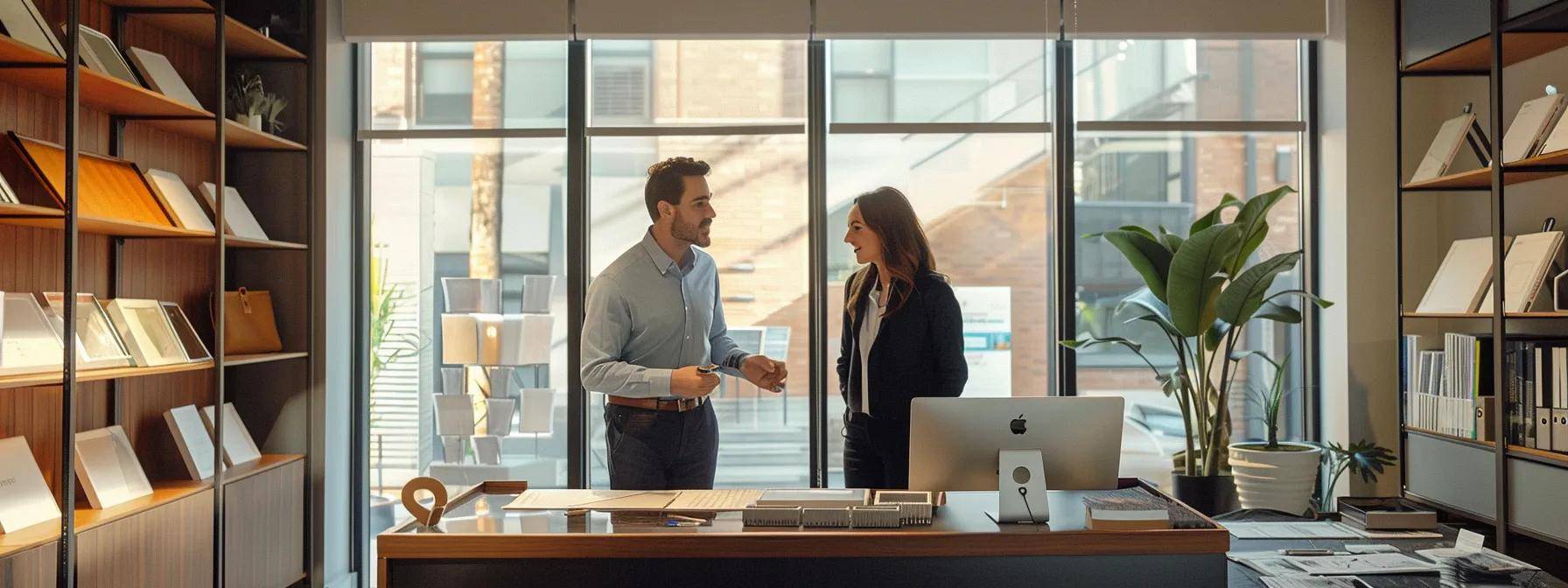
Understanding the window replacement process and the associated costs is vital for any homeowner planning an upgrade. The process is methodical, requiring careful planning, consultation, measurement, and installation, followed by finishing touches and inspections. Professional window replacement typically involves several phases to ensure that every step meets high standards and complies with state regulations. The costs involved can vary based on factors such as window type, materials, labor, and additional services such as energy assessments and financing options.
What Are the Step-by-Step Stages of Professional Window Installation?
- Consultation and Assessment – An expert visits the home to evaluate the existing windows, review the home’s energy performance, and discuss design preferences and budget constraints. This stage often includes a detailed home energy assessment.
- Measurement and Customization – Precise measurements are taken to ensure the new windows fit perfectly. Customization might be required to match the home’s architectural style.
- Product Selection – Homeowners select from various window types and materials. Experts help identify Energy Star-certified models that meet performance targets.
- Pre-Installation Preparation – The project schedule is set, and protective measures are implemented to safeguard the home interior during the installation process.
- Installation – Skilled installers remove the old windows and correctly install the new windows, ensuring a secure seal with professional-grade insulation and weatherproofing measures.
- Finishing Touches and Clean-Up – After installation, the site is re-inspected to ensure quality, and debris is removed.
- Post-Installation Inspection and Support – A final review is scheduled to address any concerns and educate the homeowner on maintenance practices.
Each of these stages is designed to optimize the performance of the replacement windows, guaranteeing long-term energy savings and improved comfort.
How Are Window Replacement Costs Calculated?
Window replacement costs in Massachusetts depend on a variety of factors. The primary elements include: – Window Type and Material: Premium materials like wood or composite often carry higher costs compared to vinyl or aluminum. – Size and Number of Windows: Larger windows or bulk replacements command higher prices. – Energy Efficiency Features: Windows with advanced insulation or low-E coatings are usually more expensive but offer greater long-term savings. – Labor: Professional installation costs vary based on project complexity and geographic location. – Additional Services: Some companies include warranties, post-installation support, and financing options that can influence overall pricing.
On average, homeowners can expect to spend between $600 and $1,200 per window, with package deals available that may reduce overall costs. Online window cost calculators help provide personalized estimates by inputting specific home details. A detailed breakdown in the table below illustrates common cost factors:
| Cost Factor | Low-End Estimate | High-End Estimate | Notes |
|---|---|---|---|
| Window Material | $200 | $600 | Vinyl to high-end wood/composite |
| Size and Customization | $150 | $300 | Standard vs. custom sizes |
| Energy Efficiency Upgrades | $50 | $150 | Low-E coatings, inert gas fills |
| Installation Labor | $150 | $300 | Varies by complexity and region |
| Additional Services/Warranty | $50 | $150 | Post-installation support included |
| Total per Window | $600 | $1,500 | Package deals may lower overall expenses |
What Financing or Warranty Options Are Available?
Many reputable window replacement companies offer financing options to spread out the cost of the project, making energy-efficient upgrades more accessible. Home improvement loans, credit, and special mass save or state-sponsored programs sometimes provide financial incentives such as rebates and tax credits. Warranties typically cover both the product and the installation, running from 10 to 20 years for the windows and sometimes offering lifetime options on labor. This assurance of long-term support underscores the reliability and quality of the installed windows.
How Long Does a Typical Window Replacement Take?
The complete window replacement process, from initial consultation to final post-installation inspection, usually spans one to two weeks for an average-sized home. Efficient scheduling and execution by experienced professionals can expedite the project without compromising quality. Weather conditions and the extent of customization may influence the timeline slightly. Homeowners appreciated clear communication regarding the timeline so they can plan surrounding projects and routines accordingly.
Why Choose Local Experts Like NewView Windows for Your Replacement Project?
When undertaking a significant home improvement project such as window replacement, hiring local experts who understand Massachusetts’ specific building codes and climate challenges is essential. Local companies like NewView Windows have a deep understanding of regional requirements and bring a personalized touch to every installation. Their expertise ensures that all installation practices meet high industry standards, resulting in superior energy performance and durability. With a reputation built on quality workmanship and customer satisfaction, NewView Windows delivers reliable service and competitive pricing.
How Does Local Knowledge of Massachusetts Building Codes Benefit You?
Local experts are intimately familiar with the regional building codes and regulations that govern construction and renovation projects in Massachusetts. This specialized knowledge guarantees that any replacement window project complies with necessary safety, insulation, and security standards. NewView Windows, for example, leverages years of local expertise to ensure that each installation not only meets but exceeds regulatory requirements. This reduces the risk of future repairs and potential legal issues, providing peace of mind for homeowners. Expert guidance on code-compliant installation contributes significantly to the overall success and long-term performance of the replacement project.
What Makes NewView Windows’ Installation Services Stand Out?
NewView Windows distinguishes itself through a commitment to high-quality workmanship combined with exceptional customer service. Their installation process is transparent, efficient, and detail-oriented, ensuring that every window is installed with precision and care. By using durable, energy-efficient products and adhering to stringent installation protocols, NewView Windows consistently achieves high energy ratings and excellent performance benchmarks. Positive customer reviews and robust post-installation support further underline the company’s dedication to customer satisfaction. The company’s proactive communication, comprehensive warranties, and after-care services make them a trusted partner for home improvement projects.
How Do Customer Reviews Reflect Our Service Quality?
Customer reviews are a strong indicator of service excellence and reliability. NewView Windows has garnered numerous positive testimonials that highlight their attention to detail, professionalism, and superior installation quality. Homeowners appreciate the personalized approach, timely project completions, and clear communication that ensures a smooth installation process. These reviews detail tangible benefits such as reduced energy bills, enhanced home aesthetics, and improved overall comfort. Potential customers can view these testimonials as a validation of the high standards NewView Windows consistently meets, providing reassurance when choosing a partner for window replacement.
What Post-Installation Support and Warranty Do We Offer?
Post-installation support is a critical factor in long-term customer satisfaction. NewView Windows provides an extensive warranty that covers both the product and the installation, ensuring that any defects or performance issues are promptly addressed. This warranty, often ranging from 10 to 20 years, safeguards your investment and offers peace of mind. Additionally, the company offers routine maintenance consultations and responsive customer service to handle any future concerns. This commitment to after-sales support reflects the company’s dedication to quality and its proactive approach to ensuring that every window replacement continues to perform optimally well into the future.
What Are Common Questions About Window Replacement in Massachusetts?
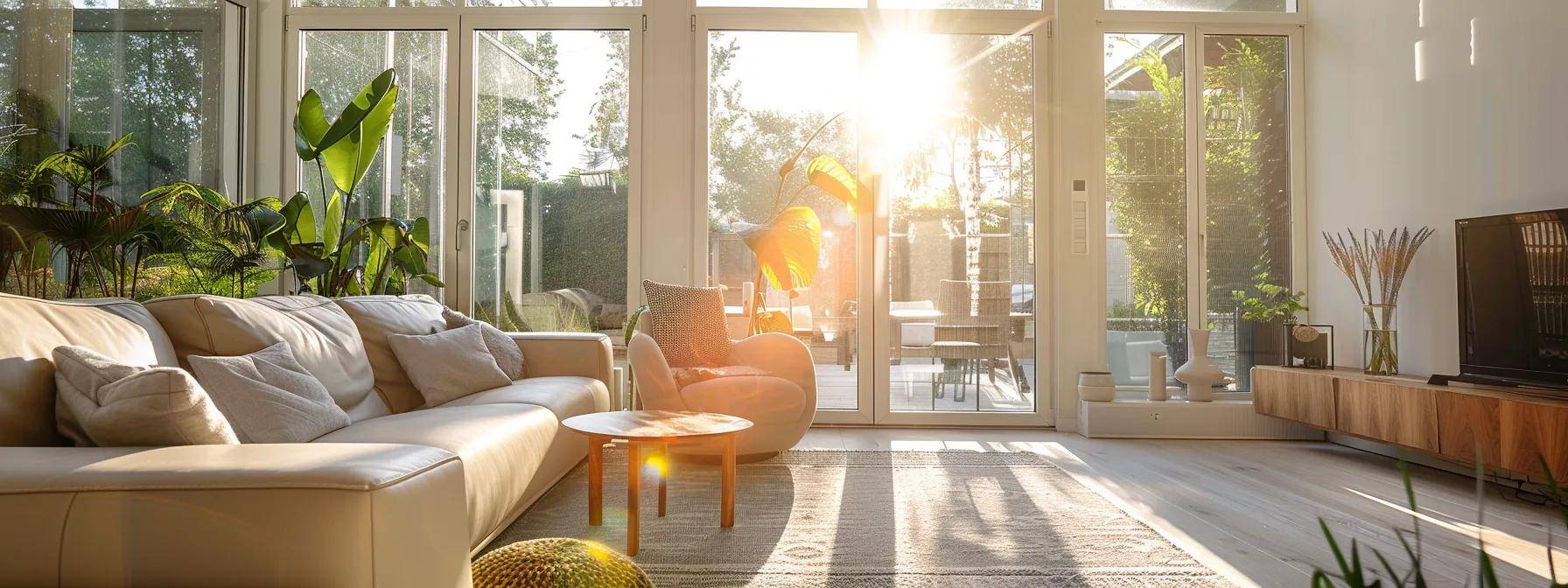
Homeowners considering window replacement commonly ask about key factors such as timing, brands, and overall benefits to home value. Understanding these common queries helps in making an educated decision regarding the replacement process and expected performance improvements. Addressing these questions ensures that customers are well-informed about the investment and its long-term benefits.
How Do I Know When It’s Time to Replace My Windows?
Signals that indicate it’s time to replace your windows include visible drafts, condensation between glass panes, difficulty in opening or closing, and a noticeable increase in energy costs. If your windows are over 20 years old or show signs of deterioration, it is often more cost-effective to replace them than to repair them. Energy-efficient new windows can dramatically improve comfort and decrease heating and cooling bills while enhancing your home’s aesthetic appeal.
What Are the Best Window Brands Available Locally?
Massachusetts residents have access to a variety of trusted window brands known for their durability, energy efficiency, and superior craftsmanship. Brands such as Andersen, Pella, and Marvin have established local reputations for quality, and companies like NewView Windows bring these products along with expert installation expertise. These brands are renowned for innovative designs that integrate advanced glazing, superior insulation, and robust construction, specifically engineered to withstand the region’s weather conditions.
Can Window Replacement Increase My Home’s Value?
Quality window replacement can significantly enhance your home’s market value by improving curb appeal, boosting energy efficiency, and reducing maintenance costs. Studies have shown that upgraded windows can add between 2% to 5% to your home’s value, contributing to a higher resale price. Energy-efficient homes are increasingly in demand, and replacing outdated windows is an effective way to achieve a competitive edge in the real estate market.
How Do Climate Conditions in Massachusetts Affect Window Choices?
The harsh weather conditions in Massachusetts, including heavy snowfall, freezing temperatures, and humid summers, necessitate windows that are robust and energy-efficient. The selected windows must offer excellent insulation to combat heat loss in winter and prevent overheating during the summer. In addition, windows need to be designed to resist moisture, ice, and thermal expansion. Choosing products that meet or exceed Energy Star standards and come with advanced weatherproofing features will ensure optimal performance and durability in such a climate.
How Can Visual and Multimedia Content Help You Choose the Right Windows?
Visual and multimedia content plays a crucial role in assisting homeowners to make an informed decision about window replacement. High-quality installation videos, before-and-after photos, and explanatory infographics enable consumers to understand the full benefits of upgrading windows. Multimedia resources simplify the complex technical aspects such as energy ratings, installation processes, and long-term maintenance requirements.
What Window Installation Videos Demonstrate Quality Work?
Installation videos provided by industry leaders showcase each step of the installation process—from measurement and removal of old windows to the final fitting and sealing of new windows. These videos offer a transparent look at professional workmanship, emphasizing attention to detail, precision, and adherence to building standards. They also serve as educational tools that help homeowners understand the importance of proper installation for maximizing energy efficiency and window longevity.
How Do Before-and-After Photos Showcase Transformation?
Before-and-after photos vividly illustrate the dramatic improvements that quality window replacement can bring. These photo galleries highlight enhanced curb appeal, increased natural light, and the overall boost in home value. For potential customers, visual transformation is a persuasive indicator of the benefits, showcasing real-life examples of renovations that yield energy savings, improved aesthetics, and higher market value. Such photos are often accompanied by testimonials and measurable data on energy performance.
What Infographics Explain Energy Efficiency Benefits Clearly?
Infographics that break down the technical aspects of window performance are invaluable resources for homeowners. These visual aids explain complex features such as the effectiveness of low-E coatings, multi-pane glazing, and insulated frames in achieving superior energy efficiency. Infographics typically compare energy consumption, heat loss percentages, and potential savings from different window types and materials. By making these details accessible, homeowners can quickly grasp how a new window system can reduce energy bills while creating a more comfortable indoor environment.
How to Use Image Alt Text and Filenames for Better Search Visibility?
When selecting window replacement visuals, it is important to use descriptive image alt text and filenames. This practice not only enhances web accessibility for visually impaired users but also improves search engine optimization (SEO). Alt text and filenames should clearly describe the image’s content, such as “massachusetts-energy-efficient-vinyl-window-installation.jpg,” ensuring that search engines accurately index the images. This approach helps potential customers find relevant visual examples and guides during their decision-making process.
Frequently Asked Questions
Q: What factors should I consider before replacing my windows? A: Homeowners should assess the age, energy efficiency, and overall condition of current windows. Important factors include signs of draft, difficulty opening/closing, condensation buildup, and increased energy bills. Additionally, consider the style and material that best complements the home’s architecture and withstands local climate challenges.
Q: How long do quality replacement windows typically last? A: High-quality replacement windows, when properly installed and maintained, can last between 20 to 40 years. The lifespan depends on the chosen material, insulation quality, and the frequency of maintenance. Vinyl and composite windows generally require less upkeep, contributing to their long-lasting performance.
Q: Is it necessary to replace all the windows in my home at once? A: While not mandatory, replacing all windows simultaneously can lead to uniform energy performance and aesthetic coherence. For some homeowners, prioritizing the most problematic or energy-inefficient windows may be a more budget-friendly approach. However, a comprehensive replacement often maximizes energy savings and market value.
Q: What potential financing options are available for window replacement projects? A: Many window replacement companies offer financing options, including home improvement loans, credit plans, and rebates through energy-saving programs such as Mass Save. These options help distribute the cost over time and can include tax credits or rebates to offset initial expenses, making the upgrade more affordable.
Q: Can new windows really improve my indoor comfort and reduce noise? A: Yes, modern windows with advanced insulation and sealing technologies significantly improve indoor comfort. They help maintain consistent indoor temperatures and reduce external noise through better soundproofing properties. This contributes to a quieter, more comfortable living environment, enhancing overall quality of life.
Q: How can I ensure that my new windows comply with local building codes? A: Hiring local professionals who specialize in window replacement guarantees adherence to Massachusetts building codes and energy efficiency guidelines. Experts like NewView Windows are well-versed in local regulations, ensuring that each installation meets all safety and performance standards, thereby avoiding future legal or performance issues.
Q: What warranties are typically available for new windows? A: Most reputable window manufacturers offer warranties that cover both product performance and installation, usually ranging from 10 to 20 years. These warranties provide coverage for defects, energy performance issues, and sometimes even labor. Homeowners should carefully review warranty terms to ensure comprehensive protection over the lifespan of their investment.

